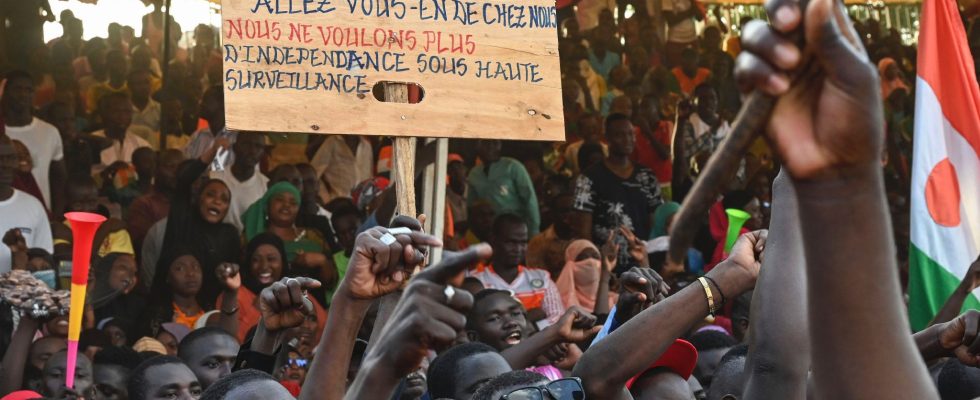The putschists are not the only ones to rejoice at the planned withdrawal, by the end of the year, of the 1,500 French soldiers positioned in Niger. Their departure is also good news for the jihadists of the Support Group for Islam and Muslims (GSIM), affiliated with Al-Qaeda, and their rivals from the Islamic State in the Greater Sahara. As is already the case in Mali and Burkina Faso, where it has also closed its bases, France will no longer participate in their hunt.
“Their expansion could continue, after significant progress made in the last two months, when Nigerien units were recalled to the capital to secure it,” estimates Elie Tenenbaum, director of the Center for Security Studies at the French Institute of International Relations. and author and author of The Twenty Years’ War: jihadism and counterterrorism in the 21st century (Marc Hecker, Robert Laffont editions).
This expansion acts like an infernal mechanism: taking control of more territories allows jihadists to better finance their activities by imposing their tax, “zakat”, on more villages and forcing more communities to provide them with new fighters. Especially since the putsch at the end of July marked the brutal end of the policy of dialogue with elements of the GSIM who defend a local agenda (and not global, like the senior leaders of Al-Qaeda), promoted by the president Mohamed Bazoum.
Mali and Burkina Faso in turmoil
Denounced by the new junta as a betrayal, this “outstretched hand” policy nevertheless managed to contain recruitment, attacks and civilian victims. Now, “there is a risk of seeing the development of a sort of jihadist corridor, from Mali to the state of Sokoto, in the northwest of Nigeria, passing through the region of Niamey, the most threatened of the capitals of the Sahelian States”, continues the researcher.
That’s not all: in Mali, the departure of French and UN forces encourages separatist groups in the north, predominantly Tuareg, to resume hostilities. Despite the support of Wagner’s Russian mercenaries, Malian units have been driven out of certain camps and are beginning to accumulate disappointments. We find some of the ingredients that led to the catastrophic situation of January 2013, when the Malian army was on the verge of collapse, under the blows of the independence and Salafist insurgencies, before the intervention of France, via the operation Serval. In Burkina Faso, from where French special forces left in February, attacks have not stopped over almost the entire territory, even though the authorities claim to have reconquered certain localities occupied by the jihadists. The future looks chaotic for the Niamey junta.
